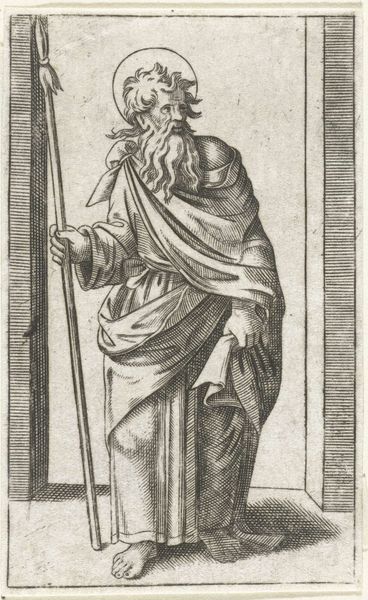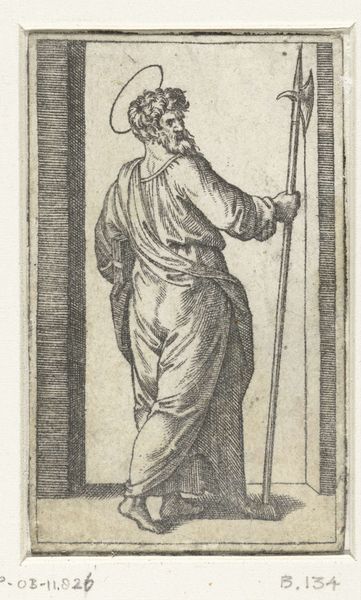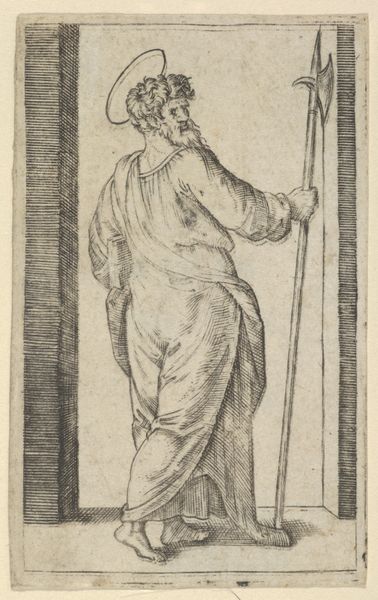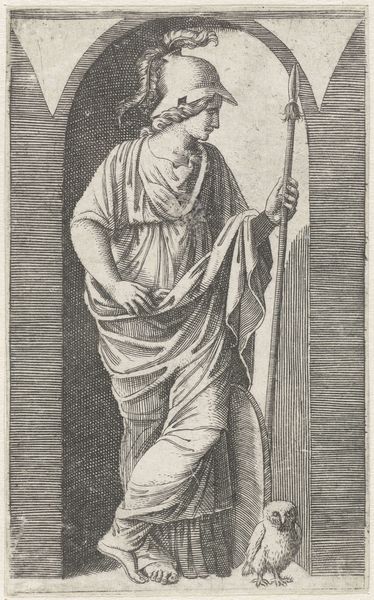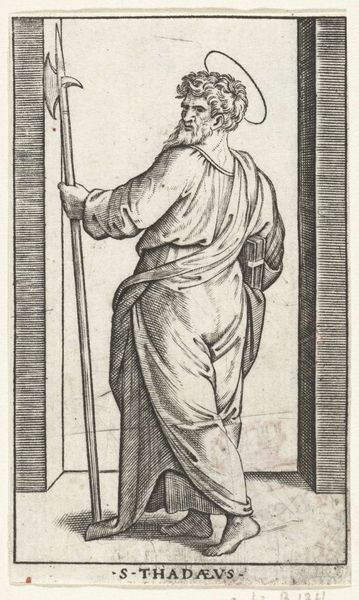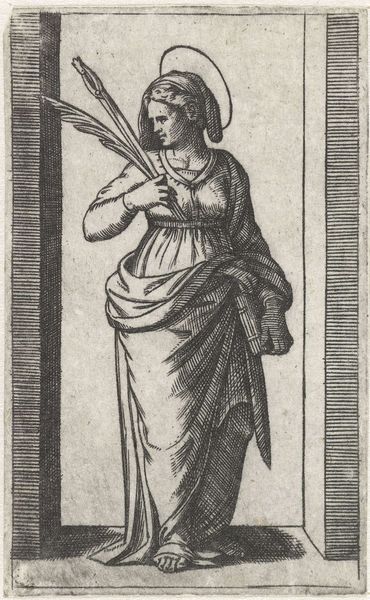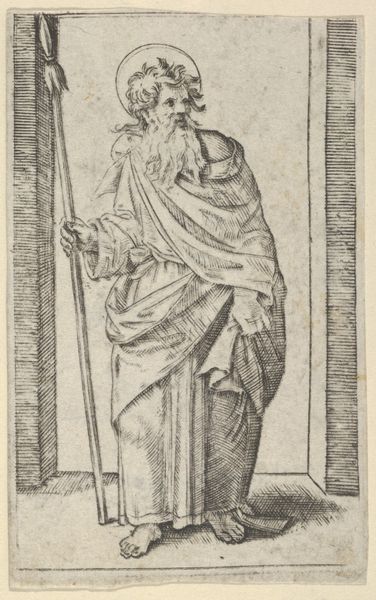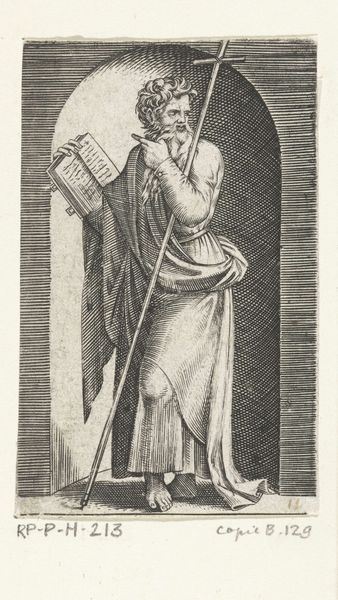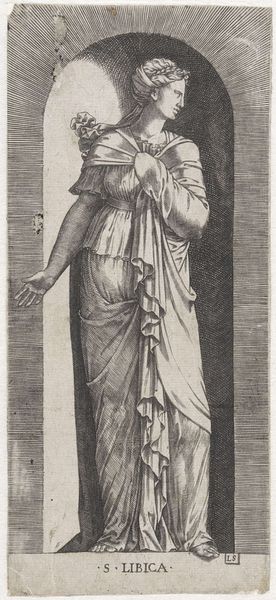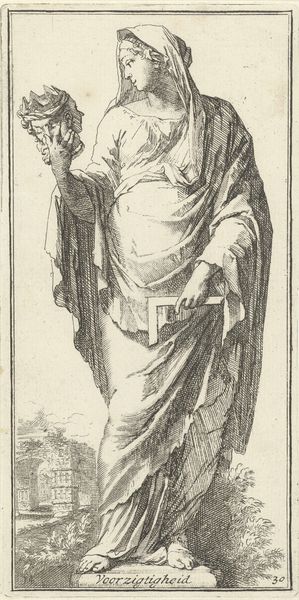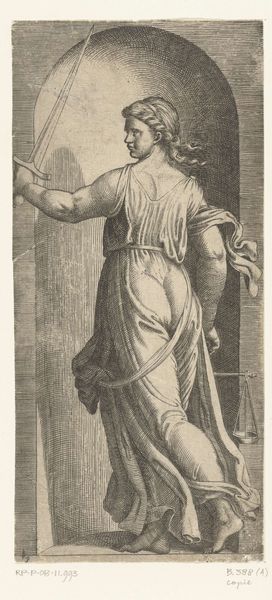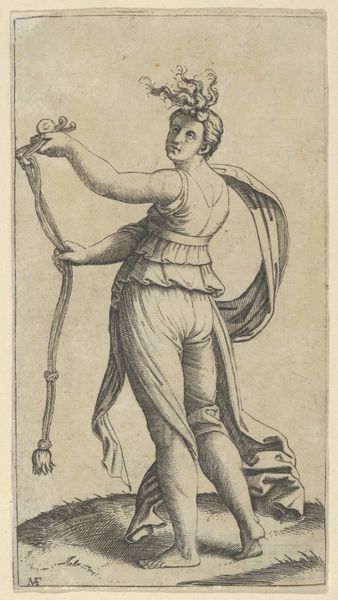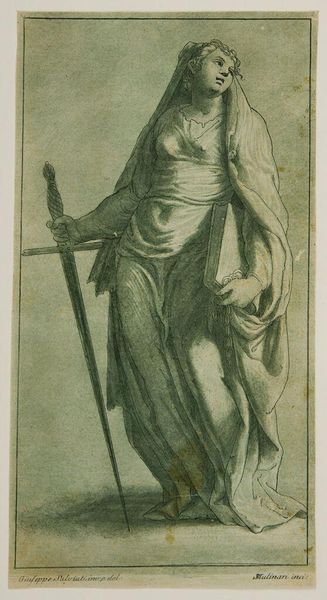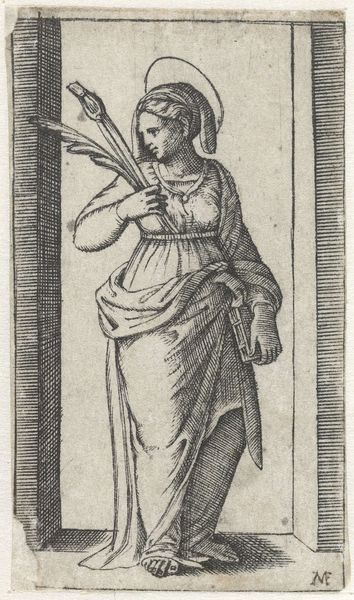
drawing, print, ink, engraving
#
portrait
#
drawing
# print
#
pen illustration
#
figuration
#
ink
#
line
#
history-painting
#
engraving
Dimensions: height 81 mm, width 45 mm
Copyright: Rijks Museum: Open Domain
Editor: We’re looking at a print titled "Apostel Judas Thaddäus met hellebaard," or "Apostle Jude Thaddeus with Halberd," dating roughly from 1517 to 1577. It's an anonymous engraving rendered in ink. I'm struck by the figure's pose, his back is turned, and the clean lines of the engraving, but I'm wondering what significance the composition holds. What do you see in this piece? Curator: The engraving displays a masterful control of line to define form and texture. Note the subtle variations in the hatching used to depict the drapery and how the artist uses stark contrast to suggest depth. The placement of the halberd, rigidly vertical against the flowing robes, sets up a visual dichotomy. Do you see how that opposition contributes to the overall structure? Editor: I do. The verticality of the halberd and the door frame really emphasizes the curves in his drapery and figure. The figure almost seems to be caught in motion. What would you say is the impact of that choice, with the figure facing away from the viewer? Curator: It invites a specific reading, doesn't it? By concealing the Apostle’s face, the engraver forces us to contemplate the symbol of Jude's martyrdom, the halberd itself, and how that dominates the composition. We must ask what purpose that absence serves and how that impacts our engagement. The framing emphasizes that separation, positioning him within and perhaps also apart from the space, doesn't it? Editor: That's fascinating. Focusing on how the forms relate to one another really opens up the work to interpretation. I wouldn't have noticed those key contrasts otherwise! Curator: Indeed. It is in that structured arrangement, in the relations of forms and lines, that the work's significance resides.
Comments
No comments
Be the first to comment and join the conversation on the ultimate creative platform.
